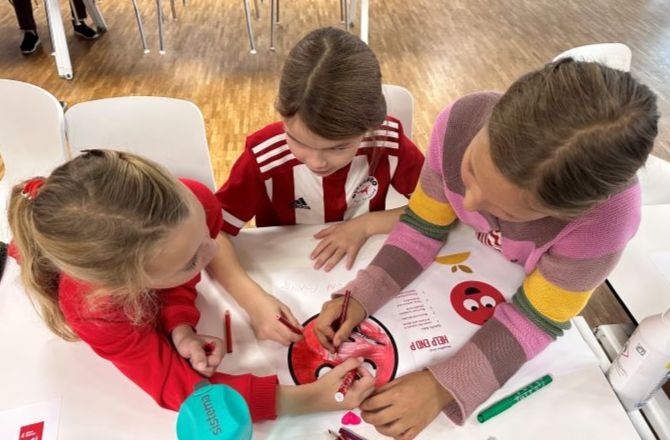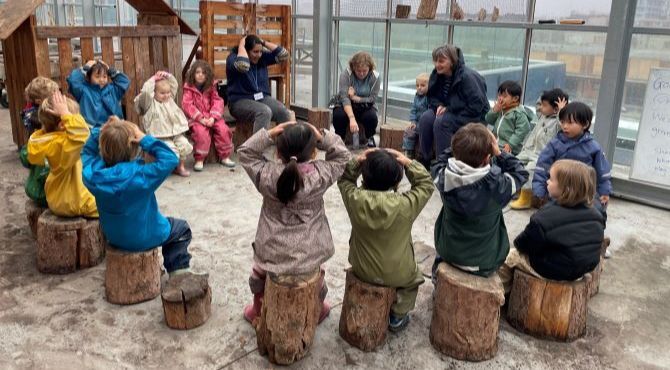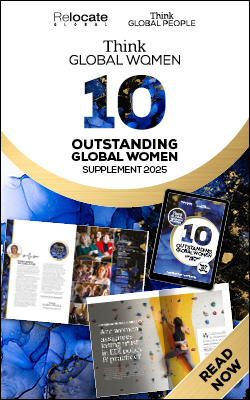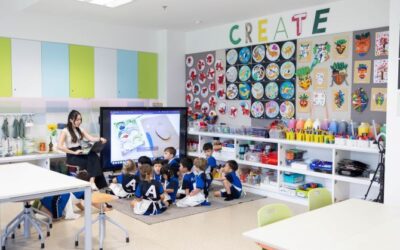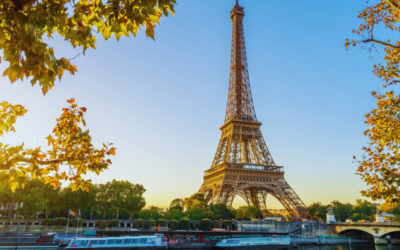The importance of early years education
Attending school in a child’s early years importantly helps lay the foundation for their cognitive, social and emotional development.
Early education fosters creativity, critical thinking, working with others and problem-solving skills. Spending time with other children and responsible adults lays the groundwork for the social skills we rely on in the rest of our lives. We need children to be able to grow happily into youngsters and adults who can navigate the complex global challenges that we face in the world today.
At institutions like Copenhagen International School (CIS), early education is designed to cultivate these attributes through a well-rounded, inquiry-based learning approach. Read on for how the Danish perceive the value of early years education and what it offers little learners.
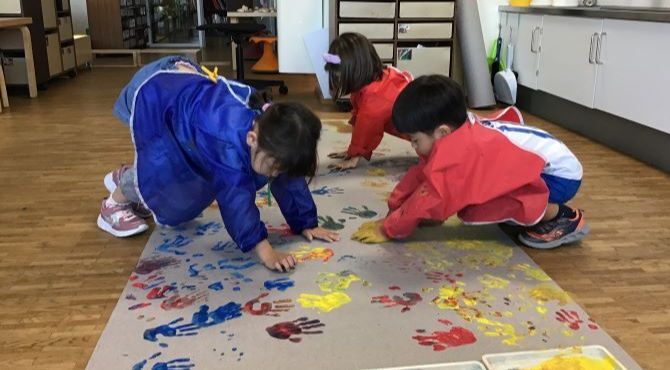
What should parents look for in an early years setting?
When selecting an early years setting, especially when both parents are working, it is crucial to prioritise a safe, nurturing, and stimulating environment that supports both academic and emotional development. It is very important that parents visit, more than once if needed, to assess the environment for themselves. It is parents who best know their child and therefore it will be them who can appreciate most accurately whether their child will thrive in the school.
Parents should look for settings that offer a balanced curriculum that promotes social, cognitive and physical growth through play-based and structured activities. Additionally, a low child-to-teacher ratio ensures personalised attention, fostering a supportive and attentive environment.
Strong communication between the staff and parents is essential. Ask about updates on your child’s progress and how open the school is to parental involvement and feedback. A diverse range of activities, from creative arts to physical exercise, indicates a well-rounded approach to development. Facilities should be clean, safe, and equipped with age-appropriate materials that encourage exploration and learning.
Red flags in an early years setting include high staff turnover, which can disrupt children’s emotional security and learning continuity. Also, be wary of inadequate safety measures, such as unsecured doors or a lack of supervision. Poor communication or a lack of transparency about the curriculum and daily activities are signs of potential issues. Additionally, environments that are overly rigid or lack opportunities for creative and outdoor play may not support holistic child development.
Perceived value of early years education in Denmark and Danish parents’ attitudes to early years
In Denmark, early years education is highly valued, reflecting the broader cultural emphasis on child development and well-being. Danish parents generally see early childhood education not just as preparation for formal schooling but as a critical period for social, emotional, and cognitive development. This perspective aligns with Denmark’s educational philosophy, which prioritises holistic development over academic achievement in the early years.
Danish parents often choose early years settings that promote play-based learning, social interaction and emotional resilience. They appreciate environments where children are encouraged to explore, experiment and engage with peers, which helps foster independence and creativity. This is why many Danish parents favour approaches such as the IB PYP or the Reggio Emilia, both focusing on child-led learning and the importance of a stimulating environment, over more traditional, structured models.
Additionally, Danish society places a strong emphasis on the well-being and rights of children, which is reflected in the country’s approach to early education. Parents expect early years settings to be inclusive, nurturing and supportive, fostering a sense of community and belonging. They value the role of outdoor play and connection to nature in early education, believing it is essential for children’s physical health, mental well-being and development of social skills. Overall, Danish parents view early years education as a foundational element of lifelong learning and personal growth.
Jessica Joelle Alexander writes in The Danish Way of Parenting:
“Play is crucial for development and well-being. In Denmark, play is considered essential for kids’ well-being and development. It teaches them socialization, negotiation skills, empathy, and coping mechanisms.”
This quote underscores the Danish emphasis on play as a fundamental part of childhood that contributes to a child’s social, emotional and cognitive growth. It reflects the broader cultural values in Denmark, where child-rearing practices focus on fostering independence, resilience and empathy through natural, playful learning experiences.
A glimpse into the life of CIS Early Years classes
A holistic early childhood education, integrating play-based learning with structured activities encourages curiosity and exploration, allowing young children to learn by engaging with their environment and peers. This method promotes language development, social skills and emotional intelligence; crucial during the formative years. As many of our little ones also come from diverse and multicultural environments, we help them to experience different cultures and perspectives from a young age, which helps them grow into more open minded and adaptable adults.
Multilingualism is another feature which is important from early on in education. Students at CIS learn English and Danish, and they are also encouraged to read and speak in their native languages. (We have 80 nationalities represented and 50+ native languages spoken around the campus). This ensures that our young students develop strong communication skills early on, something which is vital for future academic success and social integration.
Early years education helps nurture confident, competent, and compassionate individuals ready to thrive in a rapidly evolving world.
Blended IB PYP and Reggio Emilia inspiration programme
The Early Years programme at Copenhagen International School (CIS) is a vibrant educational journey designed to ignite the curiosity and passion for learning in our youngest students. The CIS early years curriculum is the International Baccalaureate Primary Years Programme (IB PYP), enriched with elements from the Reggio Emilia approach. This unique combination creates a dynamic learning environment that fosters creativity, critical thinking, and a love for inquiry-based learning in our Early Years program, which comprises students from Pre-Kindergarten to Grade 1 (ages 2 to 7).
The IB PYP framework focuses on developing young learners’ inquiry-based and critical thinking skills. It encourages students to become active, caring, and lifelong learners who respect themselves and others. The PYP framework provides a structured curriculum that includes language, mathematics, science, social studies, arts, plus personal, social and physical education, ensuring a broad and balanced foundation.
The Reggio Emilia approach complements the IB PYP by emphasising child-centred, experiential learning. This approach allows children to explore their interests through play and hands-on, fun activities in a nurturing environment. It encourages creativity, collaboration, and communication, fostering a sense of agency and independence in young learners.
Copenhagen International School chose this blended approach to provide a holistic educational experience that caters to diverse learning styles. By integrating the structured, inquiry-based framework of the IB PYP with the flexible, child-led Reggio Emilia philosophy, CIS ensures a well-rounded early education that promotes both academic excellence and personal growth.
How important is the physical space for children of this age?
The physical space in early years education is vital in shaping young learners’ experiences, fostering creativity, exploration, and social interaction. Copenhagen International School is situated in the Nordhavn area of the city. While the area is still somewhat under development, CIS has provided for a wonderful outdoor playground and children go outside daily.
CIS’s early years environment includes bright, spacious classrooms filled with natural light, designed to inspire curiosity and engagement. The furniture is flexible and child-sized, allowing for easy reconfiguration to support different types of learning activities, from group work to individual exploration. Access to a variety of learning materials within the classrooms encourages self-directed play and learning, which is a core component of the Reggio Emilia approach integrated into CIS’s curriculum.
The school’s proximity to green spaces enables frequent outdoor learning opportunities, enhancing children’s connection to nature and supporting their physical and emotional well-being. Early learners go on field trips often. They visit forests, the sea or urban areas. These field trips allow children to engage with nature, promoting physical activity, sensory exploration, and an appreciation for the environment. In your own early years setting, the space should similarly foster a sense of safety, creativity, and connection to the natural world, emphasising the importance of both structured and open-ended play in early childhood development.
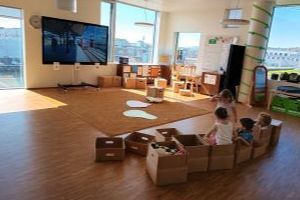
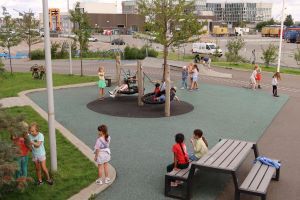
Visit the Copenhagen International School featured school page here.

